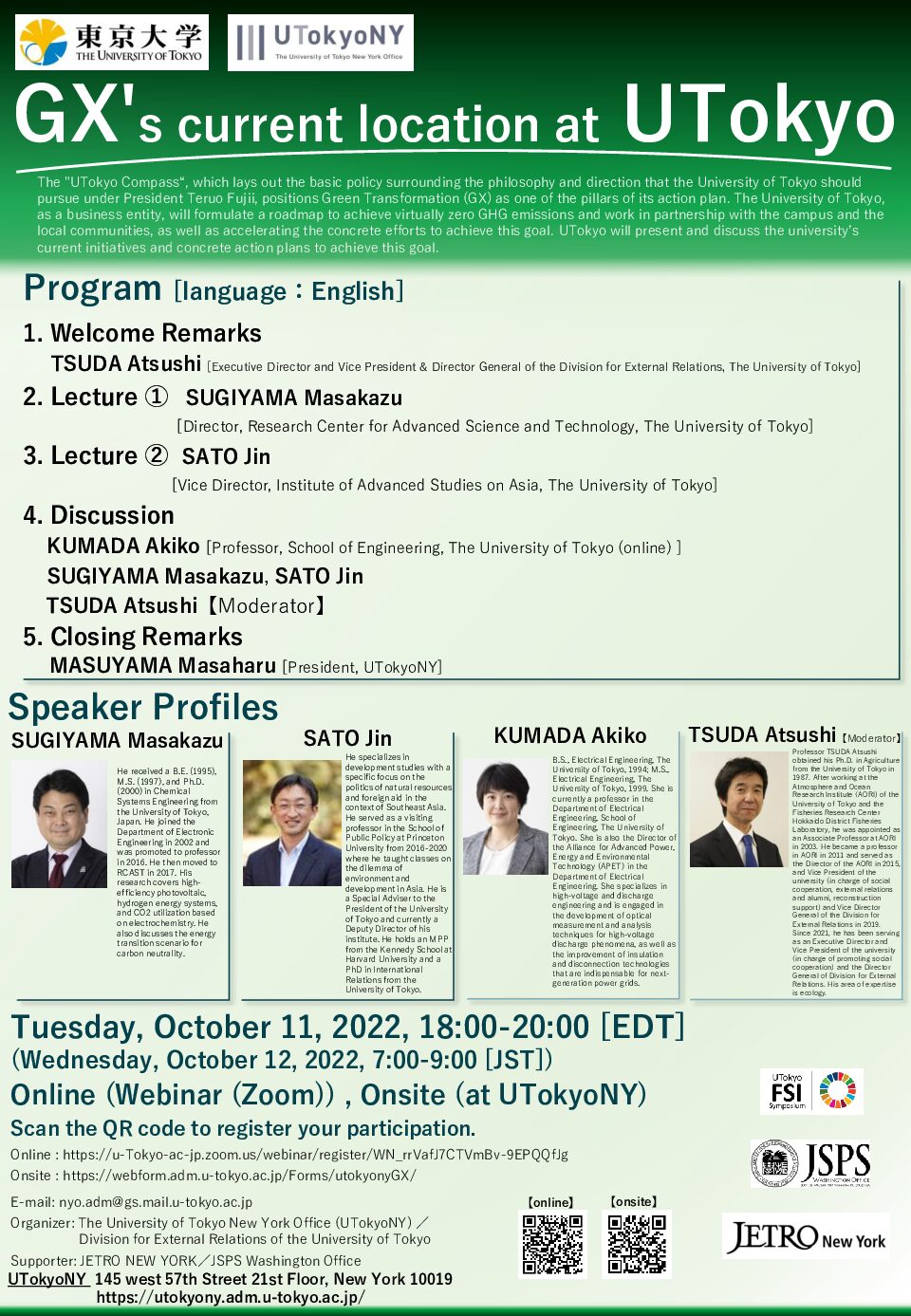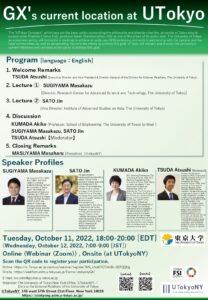The "UTokyo Compass“, which lays out the basic policy surrounding the philosophy and direction that the University of Tokyo should pursue under President Teruo Fujii, positions Green Transformation (GX) as one of the pillars of its action plan. The University of Tokyo, as a business entity, will formulate a roadmap to achieve virtually zero GHG emissions and work in partnership with the campus and the local communities, as well as accelerating the concrete efforts to achieve this goal. UTokyo will present and discuss the university’s current initiatives and concrete action plans to achieve this goal.
Event Information
・Dates and time: Tuesday, October 11, 2022, 18:00-20:00 [EDT]
(Wednesday, October 12, 2022, 7:00-9:00 [JST])
・Venue: UTokyoNY Office
145 West 57th Street 21st Floor, New York, NY 10019
https://utokyony.adm.u-tokyo.ac.jp/
Tel: +1(212)582-9800
E-mail: utny.adm@gs.mail.u-tokyo.ac.jp
・Admission: Free; registration required via registration form
Online (Webinar (Zoom)) , Onsite (at UTokyoNY)
Program [language:English]
1. Welcome Remarks
TSUDA Atsushi [Executive Director and Vice President & Director General of the Division for External Relations, The University of Tokyo]
2. Lecture ①“Energy transiton for Net-Zero Japan 2050”
SUGIYAMA Masakazu
[Director, Research Center for Advanced Science and Technology, The University of Tokyo]
3. Lecture ②“Why does social science matter in climate action?
Justice and Cmmunities in Asia”
SATO Jin
[Vice Director, Institute of Advanced Studies on Asia, The University of Tokyo]
4. Discussion
KUMADA Akiko [Professor, School of Engineering, The University of Tokyo (online) ]
SUGIYAMA Masakazu, SATO Jin
TSUDA Atsushi【Moderator】
5. Closing Remarks
MASUYAMA Masaharu [President, UTokyoNY]
Speakers
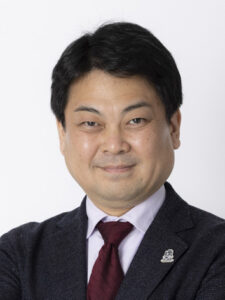
SUGIYAMA Masakazu
He received a B.E. (1995), M.S. (1997), and Ph.D. (2000) in Chemical Systems Engineering from the University of Tokyo, Japan. He joined the Department of Electronic Engineering in 2002 and was promoted to professor in 2016. He then moved to RCAST in 2017. His research covers high-efficiency photovoltaic, hydrogen energy systems, and CO2 utilization based on electrochemistry. He also discusses the energy transition scenario for carbon neutrality.
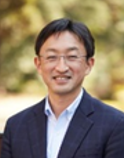
SATO Jin
Sato majors in development studies with a specific focus on the politics of natural resources and foreign aid in the context of Southeast Asia. He served as a visiting professor at the School of Public Policy at Princeton University from 2016-2020 where he taught classes on the dilemma of environment and development in Asia. He is a Special Adviser to the President of the University of Tokyo and currently a Deputy Director of his institute. He holds an MPP from Kennedy School at Harvard University and a PhD in International Relations from the University of Tokyo.
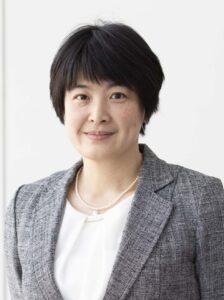
KUMADA Akiko
B.S., Electrical Engineering, The University of Tokyo, 1994; M.S., Electrical Engineering, The University of Tokyo, 1999. She is currently a professor in the Department of Electrical Engineering, School of Engineering, The University of Tokyo. She is also the Director of the Alliance for Advanced Power, Energy and Environmental Technology (APET) in the Department of Electrical Engineering. She specializes in high-voltage and discharge engineering and is engaged in the development of optical measurement and analysis techniques for high-voltage discharge phenomena, as well as the improvement of insulation and disconnection technologies that are indispensable for next-generation power grids.
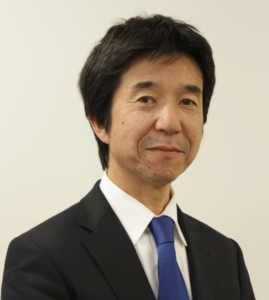
TSUDA Atsushi【Moderator】
Professor TSUDA Atsushi obtained his Ph.D. in Agriculture from the University of Tokyo in 1987. After working at the Atmosphere and Ocean Research Institute (AORI) of the University of Tokyo and the Fisheries Research Center Hokkaido District Fisheries Laboratory, he was appointed as an Associate Professor at AORI in 2003. He became a professor in AORI in 2011 and served as the Director of the AORI in 2015, and Vice President of the university (in charge of social cooperation, external relations and alumni, reconstruction support) and Vice Director General of the Division for External Relations in 2019. Since 2021, he has been serving as an Executive Director and Vice President of the university (in charge of promoting social cooperation) and the Director General of Division for External Relations. His area of expertise is ecology.

